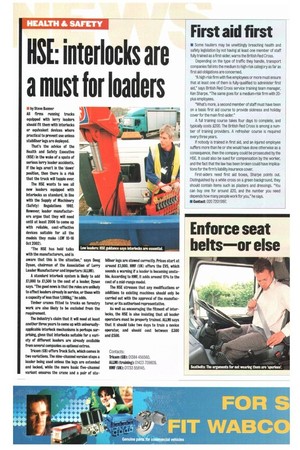First aid first
Page 26

If you've noticed an error in this article please click here to report it so we can fix it.
• Some haubers may be unwittingly breaching health and safety legislation by not having at least one member of staff fully trained as a first-aider, warns the British Red Cross.
Depending on the type of traffic they handle, transport companies fall into the medium to high-risk category as far as first aid obligations are concerned.
"A high-risk firm with five employees or more must ensure that at least one of them is fully-qualified to administer first aid," says British Red Cross service training team manager, Ken Sharpe. "The same goes for a medium-risk firm with 20plus employees.
"What's more, a second member of staff must have been on a basic first aid course to provide sickness and holiday cover for the main first-aider."
A full training course takes four days to complete, and typical& costs 2,200. The British Red Cross is among a number of training providers. A refresher course is required every three years.
If nobody is trained in first aid, and an injured employee suffers more than he or she would have done otherwise as a consequence, then the company could be prosecuted by the HSE. It could also be sued for compensation by the worker, and the fact that the law has been broken could have implications for the firm's liability insurance cover.
First-alders need first aid boxes, Sharpe points out. Distinguished by a white cross on a green background, they should contain items such as plasters and dressings. "You can buy one for around 2.20, and the number you need depends how many people work for you," he says.
• Contact: 020 72015197.








































































































































































